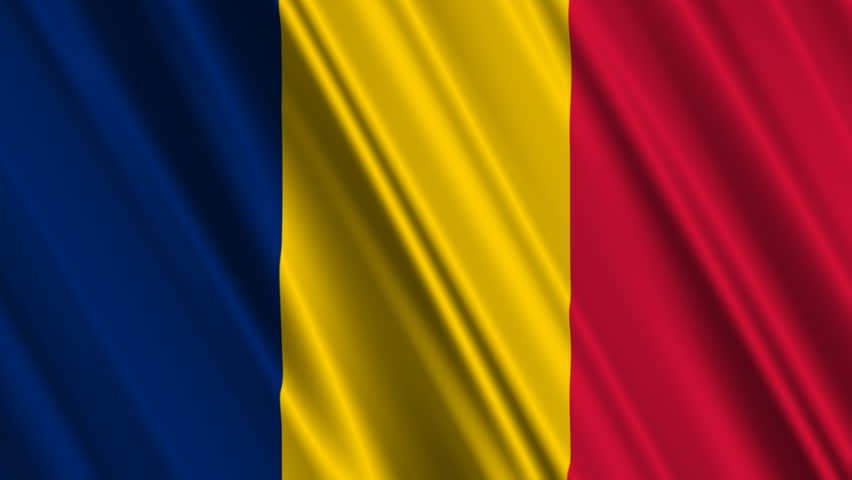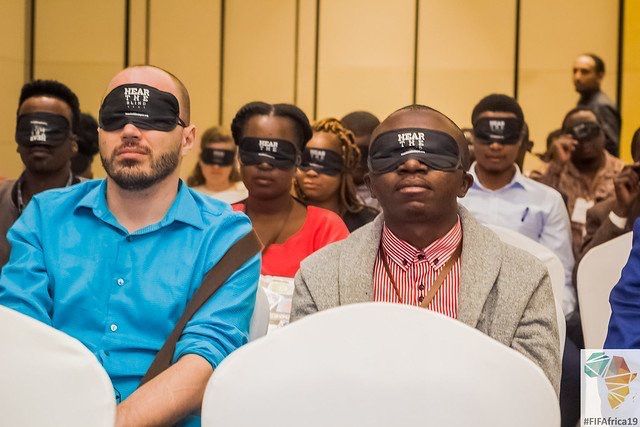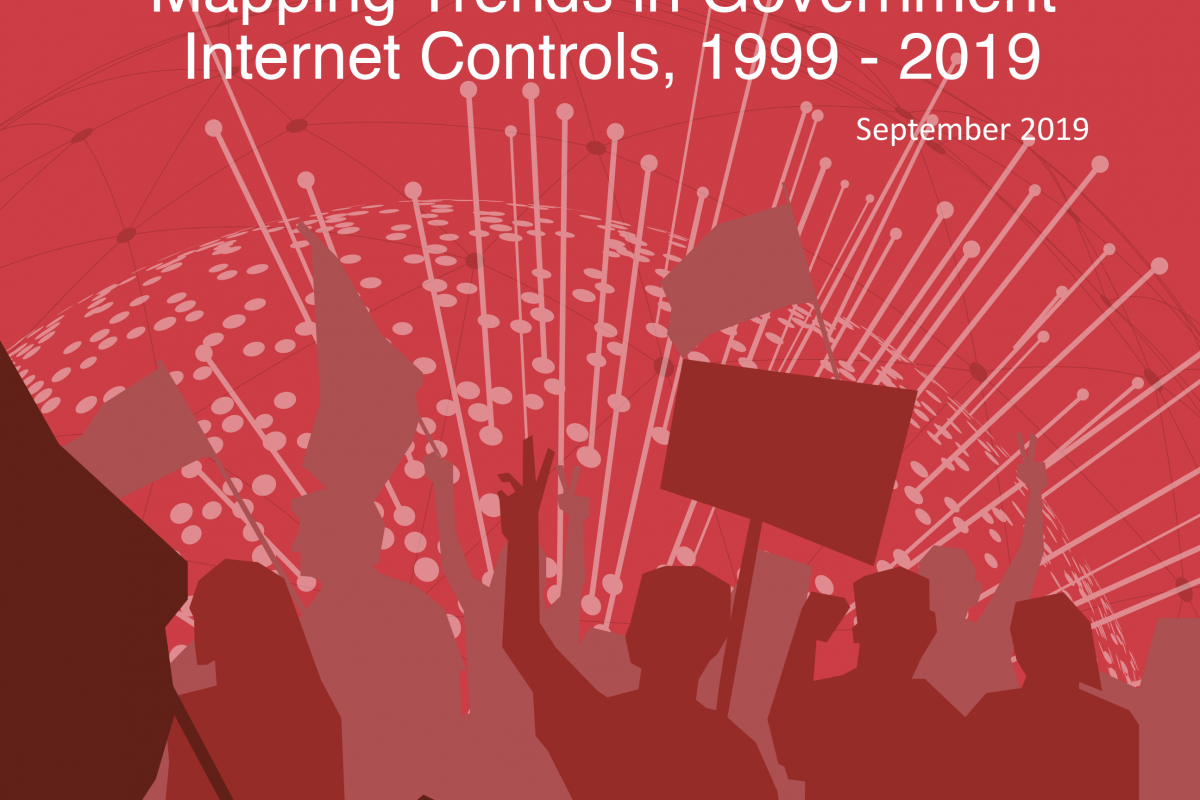Call for Proposals |
The African Internet Rights Alliance (AIRA) – an alliance of ten civil society organizations based in Uganda, Nigeria, Kenya, South Africa and Senegal – are pleased to issue this open call for proposals for a consultancy to support the operation, strategic planning and communications capacity building of the Alliance. Members of the Alliance agree to work in collaboration with each other to advance a positive environment around Digital Rights on the African continent within the next three to five years.
Further information on the call can be found here.
Chad Lifted the 16-Months Social Media Shutdown But Concerns Remain
By Simone Toussi |
In July 2019, the Chadian government lifted a 16-month blockage on access to social media, which it had imposed in March 2018. While connected citizens are now able to access social media with ease, various concerns remain. Digital communication costs are prohibitively high, the media are routinely muzzled, the country is still autocratic, and President Idriss Déby – in office for 29 years now – is not in a hurry to relinquish power. The prospects of enjoying a greater range of digital rights are low, the likelihood of another internet disruption high.
Chad has one of the world’s lowest Information and Communication Technologies (ICT) penetration rates, with internet penetration of 11.4% and mobile penetration of 46.9%. It is ranked 174th out of 176 countries worldwide and 36th out of 38 surveyed countries in Africa by ICT Development Index (IDI).
The low internet penetration did not deter the government from ordering a social media blackout when citizens staged widespread public protests against constitutional changes that could see President Déby rule until 2033. The blockage was only lifted 16 months later in the face of severe national and international pressure. While the blockage lasted, it hampered ICT uptake, denied citizens access to information, hurt their livelihoods, cost the national economy over USD 200 million, and constrained innovation.
Is Chad then ready to harness and to reap the dividends that a digital society delivers? The landlocked central African country has recently launched a 1,200 km fibre optic network linking the capital N’Djamena to the border with Sudan, a large step in broadband coverage extension since international fibre reached the country in 2012. The World Bank-supported Central African Backbone (CAB) project is also expanding ICT infrastructure. But affordability remains a huge problem, and the affronts to freedom of expression and the free flow of information online have slowed ICT uptake in the country of 16 million people. In this article, we provide a rundown of the country’s ICT sector.
ICT Legal and Regulatory Framework
The key regulations in Chad’s digital space are the law N° 014/PR/2014 on eCommunications, the law N° 009/PR/2015 on Cybersecurity and the fight against Cybercrime, the law N° 007/PR/2015 on the Protection of Personal Data, and the law N° 008/PR/2015 on eTransactions.
At the institutional level, the National Agency for Computer Security and eCertification (ANSICE), established by law N° 006/PR/2015 and under the tutelage of the Presidency, designs and implements policies to combat cybercrime, regulate and control national information systems’ security and eCommunication networks. It coordinates national cyber security actions to ensure the security of government systems and critical state infrastructure. The Regulatory Authority for eCommunications and Posts (ARCEP), which is supervised by the Ministry of Post and New Information and Communications Technologies, is the industry regulator. The ICT Development Agency (ADETIC) develops and monitors the implementation of the national ICT development strategy. However, while its establishing Law N° 12/PR/2014 provides for formation of a national ICT strategy, to-date, a strategy has not been put in place.
Access and Affordability
Article 90 of the eCommunications Act provides for good quality and affordable, universal ICT services across the country. At the July 2019 inauguration of the 1,200km national optical fibre network, President Déby stated that “operators and the State must make efforts to further support the lowering of the internet connection rates, while ensuring quality of services”. However, these aspirations remain a pipedream, as infrastructure is thinly spread and taxes make access unaffordable to many. According to the 2018 ARCEP Telecommunications Market Observatory report issued in May 2019, the average cost of one GB of data per month is currently 7,000 FCFA (USD 12), representing about 12% of the monthly minimum wage which is 60,000 FCFA (USD 101) in Chad. This means only a fraction of Chadians can afford to consistently purchase data and use the internet. In addition, speeds are low – 5KBps in 2018 as reported by ARCEP – making it hard for companies and start-ups to provide digital-based development solutions. According to Sidick Bachir Lougouma, the director general of ARCEP, with the new optical fibre network, “Chad will be able to provide national operators with a capacity of 100 gigabits of which 40 gigabits are already available.”
Meanwhile, high taxation rates also undermine affordability and uptake. Excise duty tax on mobile operators rose from 4% in 2014 to 7% in 2016. In 2017, the excise duty shot up to 18%, before falling to 9% in 2018 to-date, according to the 2019 Finance Law. In addition to the excise duty tax, Article 27 of the Finance Law states, “Subscription contracts for post-paid and fixed mobile phones are subject to a stamp duty equal to 10% of the amount of the invoices sent to the customer.”
The ACERP’s 2018 report estimates the number of mobile subscribers at seven million – equivalent to a mobile penetration rate of 46.9%. Airtel Chad, Tigo Chad, Salam, and Sotel Fixed-Tawali are the leading telecom operators, with the lion’s share of the market held by Tigo (51.1%) and Airtel (48.5%). The number of internet users was estimated at 1.74 million, representing a penetration rate of 11.4% in 2018, compared to 1.5% in 2009.
While the ongoing infrastructure investments might improve internet speeds and expand access, including to broadband, to larger parts of the country, the high and multiple taxes will keep telecommunications prices high and undermine growth in subscriber numbers.
Safety, Personal Data and Privacy
The Constitution of Chad provides for the protection of privacy in Article 49, stating: “The privacy of correspondence and communications is guaranteed by law.” Article 182 establishes the High Authority for Media and Broadcasting – an independent administrative body responsible for promoting freedom of the press, and access to information “within the framework of deference for national cultural values, public order and citizens’ privacy. “
The above constitutional provisions are reflected in the 2015 law on the Protection of Personal Data, which aims to regulate the collection, processing, transmission, storage and use of personal data. It defines personal data as “any information relating to a natural person identified or identifiable directly or indirectly, by reference to an identification number or to one or more elements, specific to his physical, physiological, genetic, psychological, cultural identity, social or economic” (Section 5).
The application of the law is ensured by the ANSICE, following a framework defined by the law N° 006/PR/2015. It guarantees respect for the fundamental rights and freedoms of natural persons, the state, local and regional authorities, civil society, and aims to ensure that the use of ICT does not infringe on individual or public liberties, especially on private life (Article 1, Paragraph 2). The law is considered a good step towards protecting personal data and promoting users’ digital rights.
Freedom of Expression and Freedom of the Press
Freedom of expression and freedom of the press are guaranteed by the Chadian Constitution as follows: “The freedoms of opinion and expression, communication, conscience, religion, press, association, meeting, movement, events are guaranteed to all. They can only be limited by respect for the freedoms and rights of others and the imperative to safeguard national unity, public order and morality“ (Article 28).
However, the country is ranked 122nd out of 180 countries in the World Press Freedom Index 2019. Arbitrary arrests and detention of journalists, closure of media outlets, a restrictive operating environment for human rights defenders, threats, intimidation and assault of reporters – have led to a culture of self-censorship online.
In addition, the government has ordered long-lasting disruptions to social networks, thus muzzling citizen participation in decision-making and the democratic process through the internet. Following the controversial re-election of President Déby in 2016, over 10 websites were blocked and the whole country experienced an internet shutdown for several weeks, followed by an eight-month disruption to social networks. At the time, authorities acknowledged that SMS services were restricted “as a security measure” but denied any interference with internet services, instead citing technical challenges.
There were reports of another government-ordered internet disruption on January 25, 2018, to thwart an anti-austerity protest. The planned “peaceful march” against “bad governance, injustices of all kinds and anti-social measures taken by the government” was organised by several civil society organisations in major cities across the country. The Minister of the Interior and Public Security banned the march, before the internet disruption occurred.
In the same way, following protests against constitutional changes, the Chadian government blocked access to social networks including Facebook, Twitter, WhatsApp, Instagram and YouTube for 16 months – from March 2018 to July 2019. While lifting the blockage, President Déby confirmed that his government had ordered the restriction of access to social networks to preserve national security. Without citing any law, he added: “For a country like Chad which has had dark hours, it is not acceptable for the internet to be diverted for malicious purposes by some individuals with fatal intentions for peace and national unity.”
Conclusion
The ICT sector in Chad remains under-developed and there is a lack of a clear roadmap to a vibrant digital society. The culture of ordering network disruptions, negligible efforts in bridging the digital divide and ensuring universal access, as well as multiple and high levels of taxation, censorship of online and traditional media by the government, remain bottlenecks to an accessible and affordable internet and undermine the contribution of ICT to Chad’s socio-economic development.
Revisions to restrictive laws and the passing of implementation regulation for existing laws is thus crucial. As in the adoption of a national strategy for ICT development.
FIFAFRICA19: The Sessions, The Lessons, and Takeaways
By Hilda Nyakwaka |
The Forum on Internet Freedom in Africa event this year was hosted in Addis Ababa between 23rd and 26th September. This event was considered monumental because a few months prior, there were internet shutdownsand this was a testament to the progressive strides Ethiopia was making in creating an open and accessible internet for its citizens.
The first two days of the week were dedicated to a training on the Universal Periodic Review (UPR) hosted by Small Mediaand Data4Changeand with representatives from over 10 African countries.The UPR, an innovation by the UN Human Rights Council, is a periodic review of the human rights records by the 193 member states of the UN (UPR). The main purpose of this training was to see how to champion for digital rights at the coming UPR.
Over these two days participants went over different concepts such as the importance of making recommendations to countries through the UN in an effort to improve the digital space, how to build capacity for recommendation-making processes, how to increase participation in the UPR process and how to foster collaborations between participants from different countries.
Some common concerns that the participants shared about the previous UPR cycles included the focus of civil society organisations on report writing as opposed to lobbying, lack of accessibility to stakeholder reports by diplomats and other concerned citizens and the lack of focus on digital rights and other human rights when making recommendations.
Some of the key takeaways were the toolsbuilt by Data4Change to guide interested parties in creating advocacy strategy plans. These tools help users to not only see what recommendations have been made to their countries of interest, but to also discover and fill the gaps in the recommendations made and which countries would be important to partner with. During this session, all participants were able to make and rate each other’s recommendations to their individual countries with specific attention to digital rights.
There was also a general agreement to increase local stakeholder mobilization, awareness workshops, jointly documenting abuse of digital rights so as to have greater impact and lastly to properly document all our work. At the end of the training, we were all awarded certificates of completion for attending the trainings and completing online courses pertaining to the UPR process.
The next two days marked the official start of the forum, which was open to everyone who had registered to attend. There were several panel sessions occurring simultaneously focusing on different internet issues across Africa. The opening panel was attended by H.E Dr. Getahun Mekuria, the Minister of Information and Technology in Ethiopia who reiterated the government’s plans to liberalize the telecommunications industry in Ethiopia and to reduce cases of shutdowns in a move to increase and improve the citizens’ access to the internet.
Sessions that I was particularly interested in narrowed, their focus to how marginalized and targeted communities interact with technology and some of the solutions they have adapted to their situations.
One such session was on the importance of African feminist movements in improving women’s voices in the digital space as moderated by Rosebell Kagumire, an award-winning blogger and Pan-African feminist . In this session, feminists from across the continent reiterated the ways in which offline patriarchal systems were replicated online against women. One point that resonated with most attendees was that women were still being policed and bullied out of a lot of social apps such as Twitter and most women preferred to be invisible. Cases were brought up on how hypervisible women were facing a lot of challenges.
In addition to this, there was also a celebratory moment when the panelists mentioned some of the movements that succeeded in championing for women’s rights both offline and online some as big and visible as the #TotalShutdownKE that fought against femicide in Kenya and the revolution in Sudan that had women at its forefront and which gained support from across the world. A major gap that was identified in this conversation was the need for building more local movements and having inclusivity within the movement to include women from the LGBTQI community as their online experiences were unidentified despite being equally important.
Another key session was held on technology and disability where persons living with disabilities spoke about how to use ICTs to reduce accessibility barriers. Some of the challenges the panelists included insufficient ICT training, lack of accessibility features on even the most basic layouts of sites and apps, affordability of devices with accessibility features as one of the panelists cited that a mobile phone with accessibility features would cost one $800 which most Africans both abled and disabled cannot afford comfortably.
An Ethiopian Case Studywas used to explain just how crucial and important it was to provide holistic education and inclusive support to people living with disabilities within our communities. Some of the solutions that the panelists offered up to improve accessibility included proper policy implementation and strict punitive measures for those who failed to implement any policies, being intentional by teaching about accessibility features right from software development classes at the college level and putting a cap to funding that requires companies and organizations to provide opportunities for and hire people living with disabilities in their firms and provide ample accessibility features before receiving full funding. There was also a call to create awareness campaigns to make citizens aware of the challenges that a large section of our communities experience and how to develop protection mechanisms for them.
In conclusion, FIFAfrica 19 was a great opportunity to share experiences and solutions to challenges we as Africans seem to be experiencing when it comes to digital rights and internet freedom. In case you weren’t able to join us in Addis for this edition of FIFAfrica, find herethe agenda for the forum, somelive tweets from the event and the report on the State of Internet Freedom in Africaby CIPESA, launched at the forum.
Report: African Countries Broadening Control Over the Internet
By FIFAfrica19 |
For the last 20 years, African countries have been broadening and enhancing control measures that govern the use of digital communications including the internet.
According to a new report by the Collaboration for International ICT Policy for East and Southern Africa (CIPESA), these controls when viewed collectively, continue to undermine democracy and cement authoritarians hold on political power.
With only 24.4% of Africans using the internet, increasingly, the countries reviewed have since 1999 adopted a similar pattern of internet control measures across the board. The key reasons given by governments are the need to safeguard national security, fight cybercrime and maintain public order.
Each successive period since 1999 came with some notable developments in internet controls, including establishment of regulatory agencies. By 2005, a few regional countries were beginning to realise the need to intercept communications, including digital communications.
Ethiopia was probably the first sub-Saharan African country to begin blocking internet sites, with the first reports of blocked websites appearing in May 2006 when opposition blogs were unavailable. During this period, laws governing media and journalism were the main way to control freedom of expression, including of voices that questioned government actions.
Between 2006 and 2010, several governments started to take dedicated moves to regulate the digital sphere, including proscribing various actions related to the use of Information Communication Technology (ICT). There was a flurry of legislation to enable the interception of communications, or to criminalise the use of certain services (as was the case with Ethiopia’s Anti-Terrorism Proclamation- No 652/2009, under which it is estimated that over 900 individuals were indicted over their online activity).
This period also witnessed numerous cases of blockage of critical websites in countries such as Burundi and Uganda. Distinctly, this period saw the start of systematic disruption of communications and other internet freedom infringements during election periods, although the target was critical websites (such as in Ethiopia and Uganda) and short messaging services, for instance in Ethiopia and Kenya).
The 2011-2015 period saw an increase in the government internet control measures with dedicated efforts to regulate and control citizens’ online actions. Many more citizens were arrested and prosecuted over alleged offences and crimes committed through online mediums. More governments ordered disruptions to communications.
Cybercrime laws enacted in this period (for example in Nigeria, Tanzania, and Uganda) became the main pieces of legislation used to undermine internet freedom through arrests and prosecution of ICT users. These laws provide vague definitions of cyber offenses and have been used to arrest and intimidate voices of dissent.
The 2016-2019 period was the “golden era” of network disruptions (commonly known as internet shutdowns). During this period, nearly half the countries in Africa, at least 22 countries experienced a government-ordered network disruption, with popular social media sites such as Facebook and Twitter being the main target. Some countries also ordered blockage of SMS, or of the entire internet, and in Uganda, Chad and DRC, mobile money services were disrupted. In 2019 alone, five countries registered network disruptions to include – Chad, Democratic Republic of Congo, Gabon, Sudan and Zimbabwe).
The report recommends several remedies for governments, companies, media, academia, technical community and civil society.
Find the full report here.
#FIFAfrica19: Just Days Away
FIFAfrica19 News |
Season of Changes
We are now just days away from this year’s edition of the Forum on Internet Freedom in Africa (#FIFAfrica19) which will be held in Addis Ababa, Ethiopia. In the lead up to FIFAfrica19, we have witnessed some interesting developments in Africa’s digital landscape.
Among them is the Policy and Regulatory Initiative for Digital Africa (PRIDA) convening at the African Union (AU), which was aimed at shaping the African digital transformation agenda through fostering universally accessible and affordable broadband across the continent to unlock future benefits of internet-based services. Further, the operational phase of the Africa Continental Free Trade Area (AfCFTA) was launched and is touted to be the world’s largest free trade area once it’s fully up and running. Meanwhile, at the recently concluded World Economic Forum (WEF), the untapped digital potential of the continent was recognised, with the need for better digital infrastructure and affordable data highlighted.
Coincidentally, in the FIFAfrica19 host country, Ethiopia, the parliament passed the Communication Regulatory Proclamation, which aims to liberalise the telecommunications sector and under which licenses will be awarded to two private mobile companies.
FIFAfrica19: A Platform to Hold Up the Mirror On Africa’s Digital Landscape
While all these developments sound promising, there remains a fundamental need for a multistakeholder approach that addresses the persisting gaps in legislation and practices related to Information and Communications Technology. As such, FIFAfrica provides an avenue for identifying and deliberating on these gaps, in addition to providing recommendations, including by marginalised and vulnerable communities such as persons with disabilities. Some of these are captured in this brief: Digital Rights in Africa: Challenges and Policy Options.
FIFAfrica presents a wide-ranging lineup of workshops and sessions among them, consultations on Internet Rights, the Sustainable Development Goals (SDGs) and Collaborative Advocacy hosted by the Global Network Initiative (GNI).
Meanwhile, AfricanFeminism.Com will assemble actors win the African feminist movement at the Forum in a session titled “End of Politeness: African Feminist Movements and Digital Voice”. The collective will illustrate how the current pan-African feminism movement is thriving on access to technologies that earlier generations did not have, to advance women’s rights to self-expression and access to information.
Ahead of the Forum on September 23 –24, there will be a series of meetings and workshops, including a policy round table discussion hosted by the Center for International Private Enterprise (CIPE). This discussion will bring together public, private, and civil society stakeholders from across the continent to discuss regional opportunities for inclusive economic and entrepreneurial development in an increasingly digital future. Topics at the policy roundtable will include data flows and privacy, eCommerce and eTrade, e-payments and financial inclusion, and the future of entrepreneurship.
FIFAfrica19 will also feature a photographic exhibition hosted by Afrophilia Magazine titled “If I were free. If we were free…” The exhibition will showcase art from Africa and the diaspora with the aim of challenging narrative about the continent online and offline. Other exhibitors will include the Ministry of Innovation and Technology (Ethiopia), Small Media, Together!, Jigsaw, Cyrilla Collaborative, Netblocks, the Democratic Principles for an Open Internet, Localization Lab, Electronic Frontier Foundation (EFF), SafeSisters and the Internet Society.
These are just a few of the numerous sessions, workshops and exhibitions that will be taking place next week among others including on topics such as biometrics and facial recognition technology, digital rights and revolution, refugees and access to technology, censorship, ICT and persons with disabilities, elections, internet shutdowns, and the right to associate and assemble in the digital age among many others. See the latest agenda.
Participants at the Forum will also have access to the Digital Security Hub, hosted by experts from Access Now, DefendDefenders, the Digital Security Alliance, Defenders Protection Initiative, and Greenhost.
Unable to attend #FIFAfrica19 in person
We have you covered. Be sure to join the discussions online using #FIFAfrica19 and #InternetFreedomAfrica. A live-stream will be available on our YouTube Channel as well.
Important Notices On Attendance and Registration
Please note that the Forum is in two parts
23–24 September, are days dedicated towards closed meetings and invitation only workshops.
25–26 September, are days open to all registered attendees.
By now, all recipients of travel support have received their information on flights and visas. For further information please refer to the travel note. If you have any further visa related queries please email [email protected]
Any Further queries? Please contact [email protected] and copy [email protected] if you have any queries.
Spread The Word
We look forward to seeing you at #FIFAfrica19 in person and online. We encourage you to share your thoughts on internet freedom with us and the wider community online. Please use the hashtags #FIFAfrica19 and #InternetFreedomAfrica.
Code of Conduct
Interactions at FIFAfrica include many different opinions and experiences hence it is essential to uphold respect and ensure comfortable participation for all attendees, staff and support personnel. Attendees of the Forum must follow the Code of conduct which covers the main Forum events and all Forum-related social events such as parties, gatherings at restaurants, bars and hotels. It also covers the conduct of participants on online platforms during the Forum. The Code of conduct is aimed at building a community that is free from intimidation, discrimination, or hostility by upholding dignity, decency, and respect among participants.
Please read the #FIFAfrica Code of Conduct.





